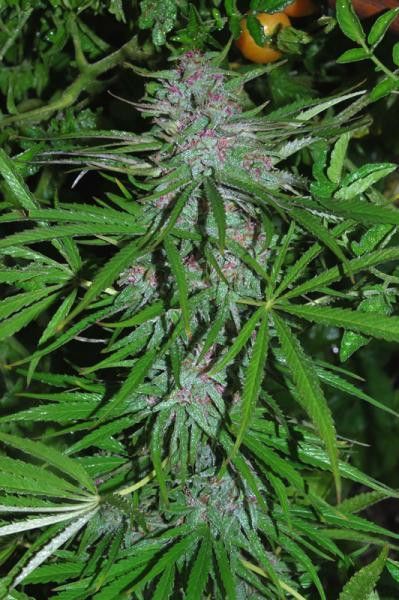Cannabidiol has been proven a good remedy for many ailments. Known as CBD, one of many cannabinoids found in the plant.
Using CBD does not lead to dependence or tolerance towards the drug, this makes CBD tempting for those who are looking for relief from multiple ailments and disorders.
CBD doesn’t get you high or come with any form of intoxication, that’s caused by THC, another cannabinoid in the plant.
The human body contains a specialized system called the endocannabinoid system (ECS), which is involved in regulating a variety of functions including pain, appetite, sleep and immune system response
Here are some of the benefits and some side effects of CBD.

Shop CBD From UK
CBD And Relief from Chronic Pain & Inflammation
Suffering from chronic pain? Many people have experienced relief from pain after using CBD. Studies have shown that CBD may help reduce chronic pain by impacting endocannabinoid receptor activity, reducing inflammation and interacting with neurotransmitters.
Does CBD Help Anxiety & Depression?
While doctors generally advise people suffering from chronic anxiety to avoid cannabis, since even traces of THC can trigger or increase anxiety and paranoia, authors of a review published in the Journal Neurotherapeutics in 2015 derived that CBD, can actually help reduce anxiety in people with certain anxiety related disorders, such as~
- Post-traumatic stress disorder (PTSD)
- General anxiety disorder
- Panic disorder
- Social anxiety disorder
- Obsessive-compulsive disorder (OCD)
- Substance-abuse disorders
Is CBD Good For Helping Schizophrenia
Another study, published in Current Pharmaceutical Design, another peer-reviewed medical journal that covers issues related to pharmacology and medicinal chemistry, found that CBD properties Are similar to those of certain antipsychotic drugs and that this compound is much safer and a more effective option for people with schizophrenia.
CBD Can Help Alleviate Cancer Related Symptoms
CBD may help reduce symptoms related to cancer and side effects related to cancer treatment, like nausea, vomiting and pain.
One study looked at the effects of CBD and THC in 177 people with cancer related pain who did not experience relief from pain medicine. Those treated with an extract containing both compounds experienced a significant reduction in pain compared to those who received only THC extract. CBD may also help reduce chemotherapy induced nausea and vomiting, which are among the most common chemotherapy related side effects for those with cancer
Some test-tube and animal studies have even shown that CBD may have anticancer properties. For example, one test-tube study found that concentrated CBD induced cell death in human breast cancer cells.
Another study showed that CBD inhibited the spread of aggressive breast cancer cells in mice.
However, these are test-tube and animal studies, so they can only suggest what might work in people. More studies in humans are needed before conclusions can be made.
CBD Can Help Fight Addiction
CBD oil may help people with addiction overcome their withdrawal symptoms, suggested a review published in the journal Substance Abuse in 2015. In their report, they analyzed 14 previously published studies in which scientists determined that CBD may have a therapeutic effect on people with opioid, cocaine, and/or psycho-stimulant addiction.
They also found that CBD may help treat those with cannabis and tobacco addiction. Researchers have found evidence of CBD blocking or sometimes reducing THC’s effect on the mind.
Another study published in Addictive Behaviours, found that smokers, who used inhalers containing CBD, smoked fewer cigarettes than usual. They also did not suffer from any withdrawal symptoms like cravings for nicotine.
More research is necessary, but these findings definitely point to the possibility of CBD helping prevent or decrease withdrawal symptoms.
CBD Can Help Treat Skin Conditions
Several studies have shown that CBD oil has a high potential for treating skin conditions, like eczema, by encouraging abnormal cell death.
It also helps regulate the skin’s oil production, thus reducing acne. CBD helps to lower the production of sebum, partly because of CBD’s anti-inflammatory property. Owing to these reasons, CBD could well become the future treatment for acne vulgaris, the most common form of acne.
It will be interesting to note that cannabidiol also contains nutrients like vitamin E that help nourish and protect the skin.
CBD Could Have Neuroprotective Properties
Researchers believe that CBD’s ability to act on the endocannabinoid system and other brain signalling systems may provide benefits for those with neurological disorders.
In fact, one of the most studied uses for CBD is in treating neurological disorders like epilepsy and multiple sclerosis. Though research in this area is still relatively new, several studies have shown promising results.
Sativex, an oral spray consisting of CBD and THC, has been proven to be a safe and effective way to reduce muscle spasticity in people with multiple sclerosis.
One study found that Sativex reduced spasms in 75% of 276 people with multiple sclerosis who were experiencing muscle spasticity that was resistant to other treatments.
Another study gave 214 people with severe epilepsy 0.9–2.3 grams of CBD oil per pound (2–5 g/kg) of body weight. Their seizures reduced by a median of 36.5%
CBD has also been researched for its potential effectiveness in treating several other neurological diseases.
For instance, several studies have shown that treatment with CBD improved quality of life and sleep quality for people with Parkinson’s disease.
Additionally, animal and test-tube studies have shown that CBD may decrease inflammation and help prevent the neurodegeneration associated with Alzheimer’s disease.
In one long-term study, researchers gave CBD to mice genetically predisposed to Alzheimer’s disease, finding that it helped prevent cognitive decline
CBD Can Help Reduce Oxidative Stress
Oxidative stress is a condition when the body has too many free radicals and antioxidants aren’t able to neutralize all of them.
Two separate studies have shown that CBD oil has antioxidant and neuroprotective potentials that help in reducing neurological damage caused by free radicals.
Calms Epilepsy
CBD has been proven to have anti-seizure properties that can effectively treat children with drug-resistant types of neurological disorders like epilepsy.
In a study published in the New England Journal of Medicine, CBD showed a decrease in the frequency of seizures by 23 percentage points over those taking a placebo.
In fact, in June 2018, FDA approved the prescription use of Epidiolex, a purified form of CBD oil, for treating two rare and severe forms of epilepsy in patients of the ages of 2 years and older. These two forms of epilepsy – Lennox-Gastaut Syndrome (LGS) and Dravet Syndrome (DS) usually don’t respond to anti-seizure medicines.
Epidiolex happens to be the first FDA-approved drug that contains a purified form of a drug derived from marijuana. This drug reduces the seizures and sometimes stops them altogether. Remarkable visual proof of its effects on children suffering from epilepsy.
Research has also suggested that CBD can help treat complications arising from epilepsy, like neurodegeneration, neuronal injury, and psychiatric diseases.
Taking CBD Side Effects
Though CBD is generally well tolerated and considered safe, it may cause adverse reactions in some people.
Side effects noted in studies include
- Diarrhea
- Changes in appetite and weight
- Fatigue
- Dry Mouth
- Light-headedness
- Drop-in Blood Pressure
CBD is also known to interact with several medications. Before you start using CBD oil, discuss it with your doctor before use.


[…] Also for information about the full benefits of CBD Check this post. […]